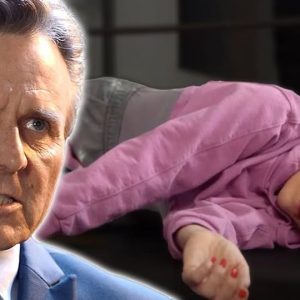**“Hartz Rot Gold” Jessica und Olaf wird Baby weggenommen: Schockierende Details kommen ans Licht – Daily News**
**Spoiler Alert: Major plot points for “Gute Zeiten” revealed below! Do not read if you want to avoid spoilers.**
The Daily News headline screams the truth: the idyllic life Jessica and Olaf carefully constructed in “Gute Zeiten” crumbles spectacularly. Their newborn child is taken away, a devastating blow that unravels the carefully curated facade of their seemingly perfect relationship. This isn’t a simple case of parental incompetence; the shocking details that emerge are far more complex and disturbing.
The removal of the baby isn’t a sudden, impulsive act by the authorities. The narrative unfolds slowly, revealing a series of escalating concerns that ultimately lead to the heartbreaking separation. We learn about previously hidden struggles within their relationship, cracks in the foundation that were cleverly disguised until now. Financial difficulties, hinted at throughout the film, are revealed to be far more severe than initially suspected – their “Hartz Rot Gold” situation is much more precarious than viewers had anticipated. This financial instability directly impacts their ability to provide adequate care for their child.
The film delves deep into the systemic issues surrounding poverty and parenthood, highlighting the intense scrutiny and pressure placed on families struggling financially. Jessica’s actions, initially appearing driven by love and desperation, are gradually exposed as driven by increasingly desperate choices. Olaf, initially presented as the steadfast support, is revealed to have his own hidden weaknesses and failings, making him less equipped to help navigate their crisis.
The investigation into their suitability as parents unveils a shocking discovery: a pattern of neglect, not necessarily malicious, but nonetheless severe enough to warrant intervention. The film doesn’t shy away from showing the painful consequences of their mistakes, demonstrating the devastating impact on both Jessica and Olaf, not just the loss of their child but also the disintegration of their trust in themselves and each other. Their relationship, already strained by their financial woes, is tested to its breaking point.
The “schockierende Details” involve a series of events leading to the ultimate removal. These include a near-miss accident involving the baby, revealed to be a consequence of Jessica’s exhaustion and overwhelming stress brought on by their precarious financial and emotional states. Olaf’s attempts to help, though well-intentioned, inadvertently exacerbate the problem, highlighting the vicious cycle of poverty and its impact on families. The film also reveals a hidden medical condition affecting the baby, previously unknown, which further complicates the situation and strengthens the argument for intervention.
The final scenes are emotionally wrenching. We witness the desperate attempts by Jessica and Olaf to reclaim their child, highlighting the bureaucratic hurdles and legal complexities they face. The film poignantly illustrates the emotional toll of the separation, both on the parents and their extended family. It’s a stark reminder of the harsh realities faced by families struggling within the system, leaving viewers with a lingering sense of unease and a deeper understanding of the challenges surrounding poverty and parenthood. The ending leaves the future uncertain, offering no easy solutions and prompting reflection on the complexities of the “Hartz Rot Gold” system and its impact on vulnerable families.





